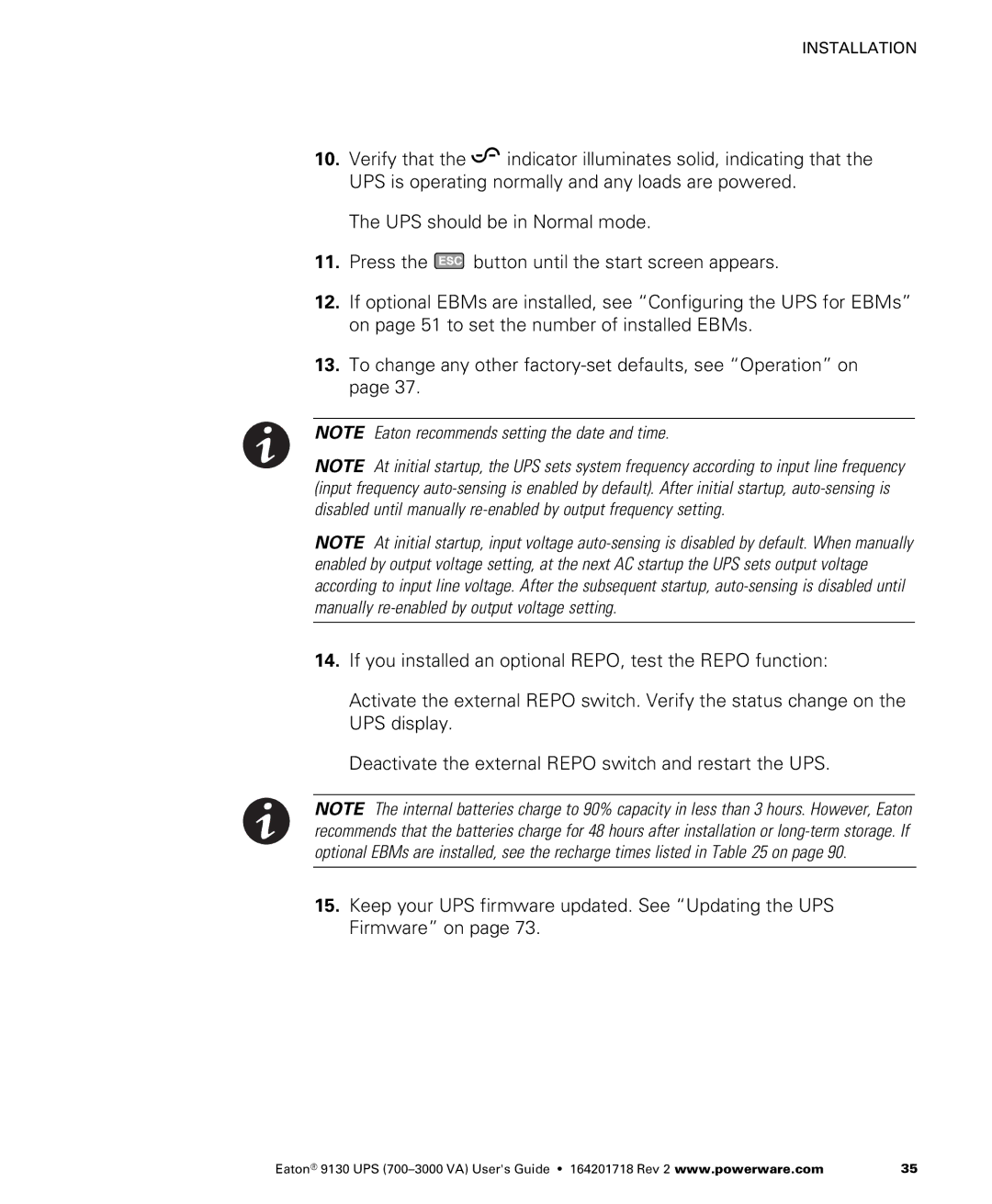
INSTALLATION
10.Verify that the ![]() indicator illuminates solid, indicating that the UPS is operating normally and any loads are powered.
indicator illuminates solid, indicating that the UPS is operating normally and any loads are powered.
The UPS should be in Normal mode.
11.Press the ESC button until the start screen appears.
12.If optional EBMs are installed, see “Configuring the UPS for EBMs” on page 51 to set the number of installed EBMs.
13.To change any other
NOTE Eaton recommends setting the date and time.
NOTE At initial startup, the UPS sets system frequency according to input line frequency (input frequency
NOTE At initial startup, input voltage
14.If you installed an optional REPO, test the REPO function:
Activate the external REPO switch. Verify the status change on the UPS display.
Deactivate the external REPO switch and restart the UPS.
NOTE The internal batteries charge to 90% capacity in less than 3 hours. However, Eaton recommends that the batteries charge for 48 hours after installation or
15.Keep your UPS firmware updated. See “Updating the UPS Firmware” on page 73.
Eaton® 9130 UPS | 35 |
